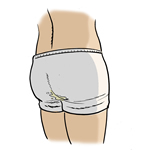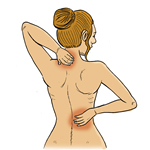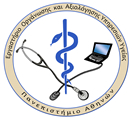Symptoms
|
 1. Intense, rice-water diarrhea 1. Intense, rice-water diarrhea
|
|
|
|
 2. Muscle cram 2. Muscle cram
|
|
|
|
 3. Dehydration (fluid loss, dry mouth and skin) 3. Dehydration (fluid loss, dry mouth and skin)
|
|
|
|
 4. Nausea 4. Nausea
|
|
|
|
 5. Vomiting 5. Vomiting
|
In cases of severe dehydration, cholera can be fatal in a matter of hours.
Transmission
Cholera is transmitted through the consumption of contaminated food or water. Water usually is contaminated by sewage containing the watery stool of cholera sufferers and this, in turn, may contaminate food directly or indirectly. The food can be contaminated by dirty hands during the preparation or consumption of a meal. It has been established that cholera can be spread through beverages, ice cubes, contaminated bottled water, and raw or incompletely cooked shellfish.
Treatment
For the treatment of cholera, seek medical help. Hydration is the mainstay of cholera treatment. Oral administration of fluids and salts, as well as the intravenous administration of fluids and electrolytes in severe cases, is associated with decreased mortality.
Prevention
-
Wash your hands frequently with soap and safe water (e.g. before the preparation of meals, before eating, before feeding your children, after using the restroom, after bathing your child or changing a soiled diaper, after having cared for someone who is sick with diarrhea).
-
Drink safe water (e.g. sealed bottled water from safe water supplies, water that has been boiled for at least 1 minute).
-
Use safe water in order to brush your teeth, to wash and prepare food and to make ice cubes.
-
Clean all surfaces used for food preparation and kitchen utensils with soap and safe water.
-
Your food should be thoroughly cooked (in particular shellfish) and your fruit and vegetables should be peeled.
-
Breast feeding protects infants from the disease.
When to seek medical advice
If you present cholera symptoms, seek medical advice. If you plan to travel to areas where cholera is an issue, ask your doctor well in advance regarding the need for a vaccine.
Vaccines
The cholera vaccine is recommended for persons visiting areas where there is cholera and the access to health services is limited, refugee camps and war zones.
References
keelpno
cdc.gov
nhs














